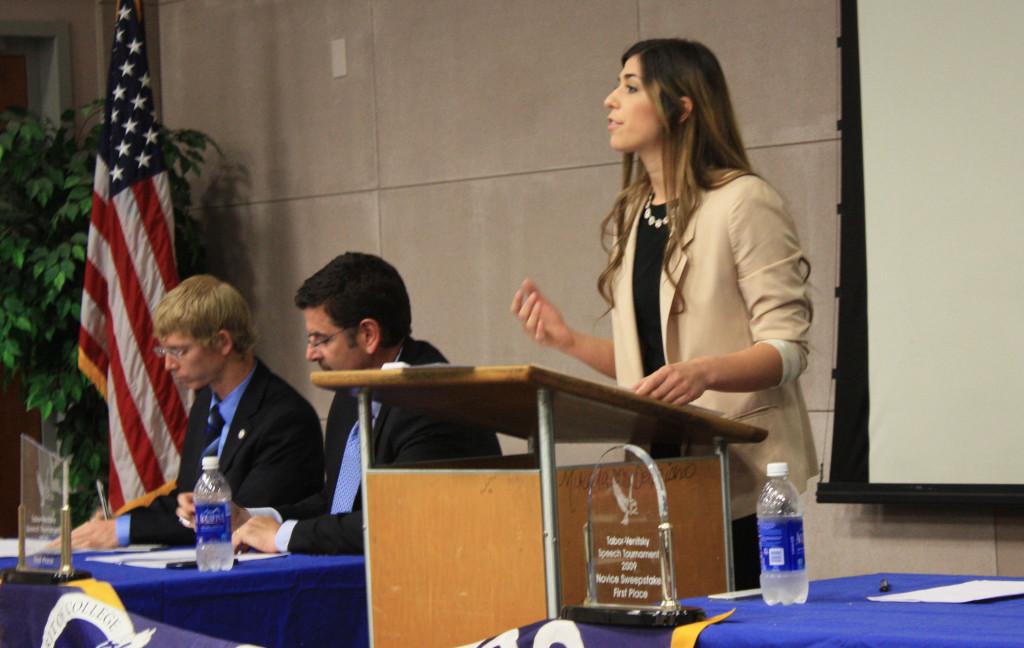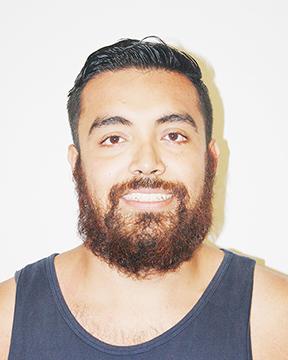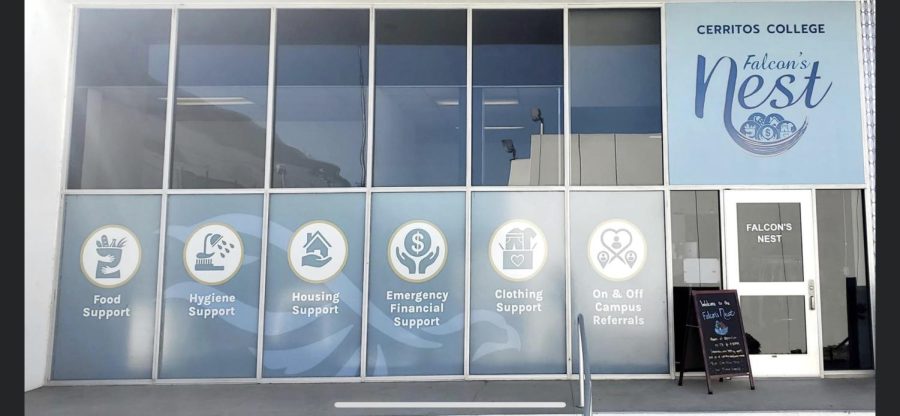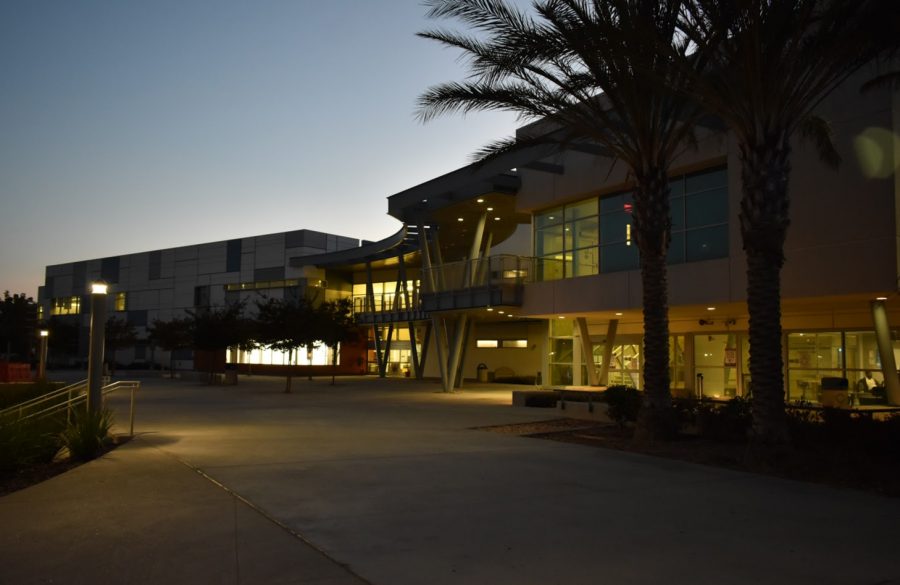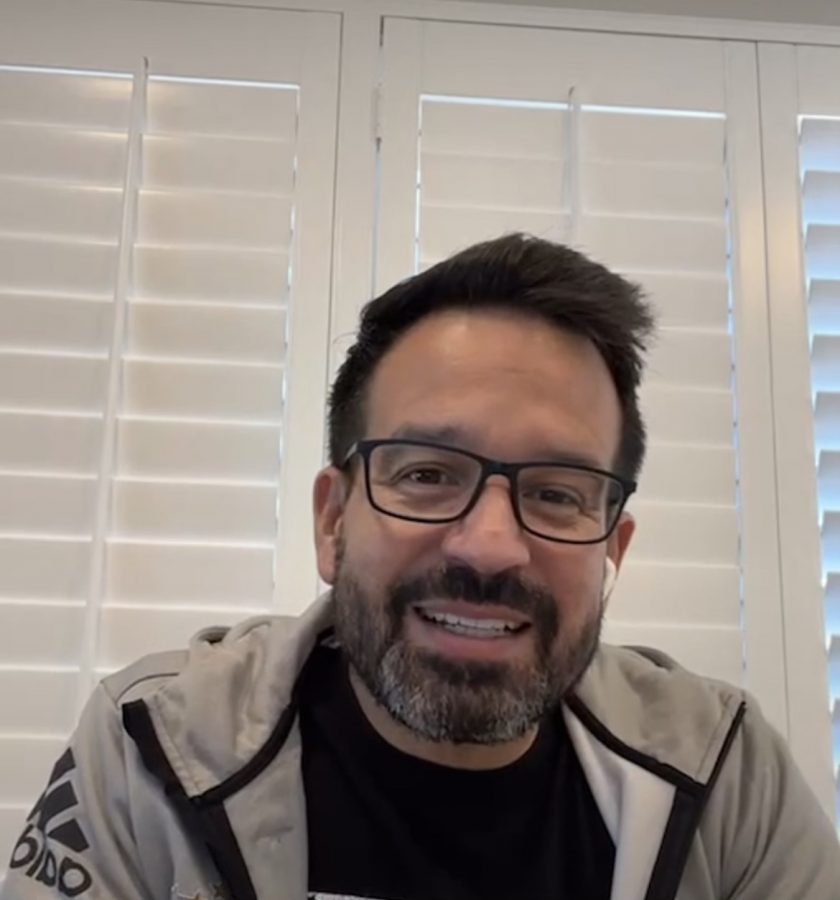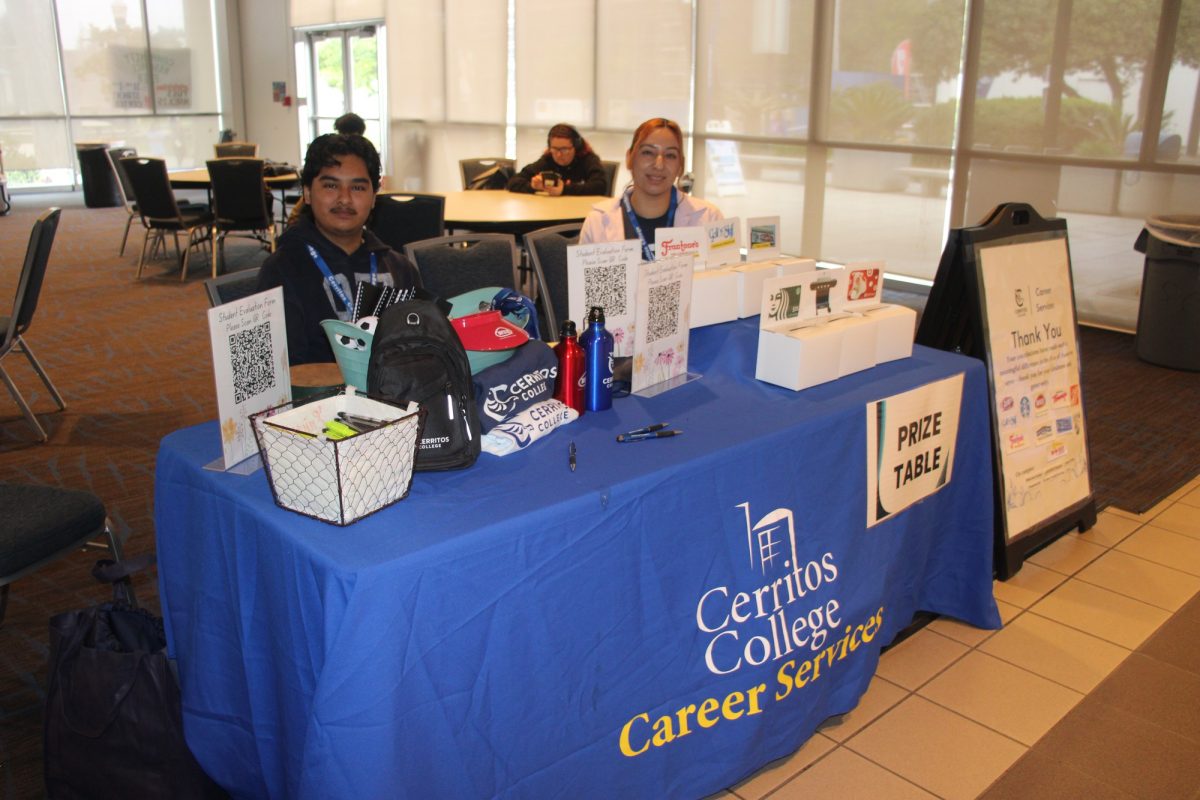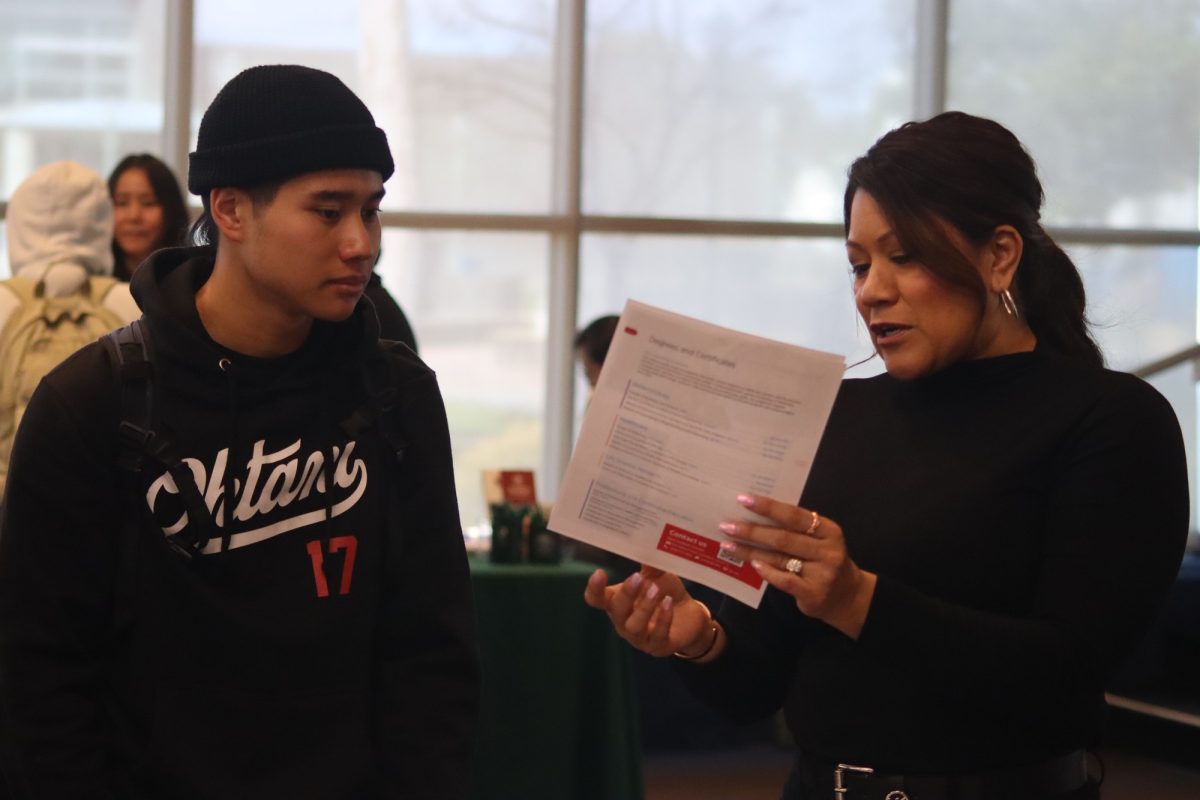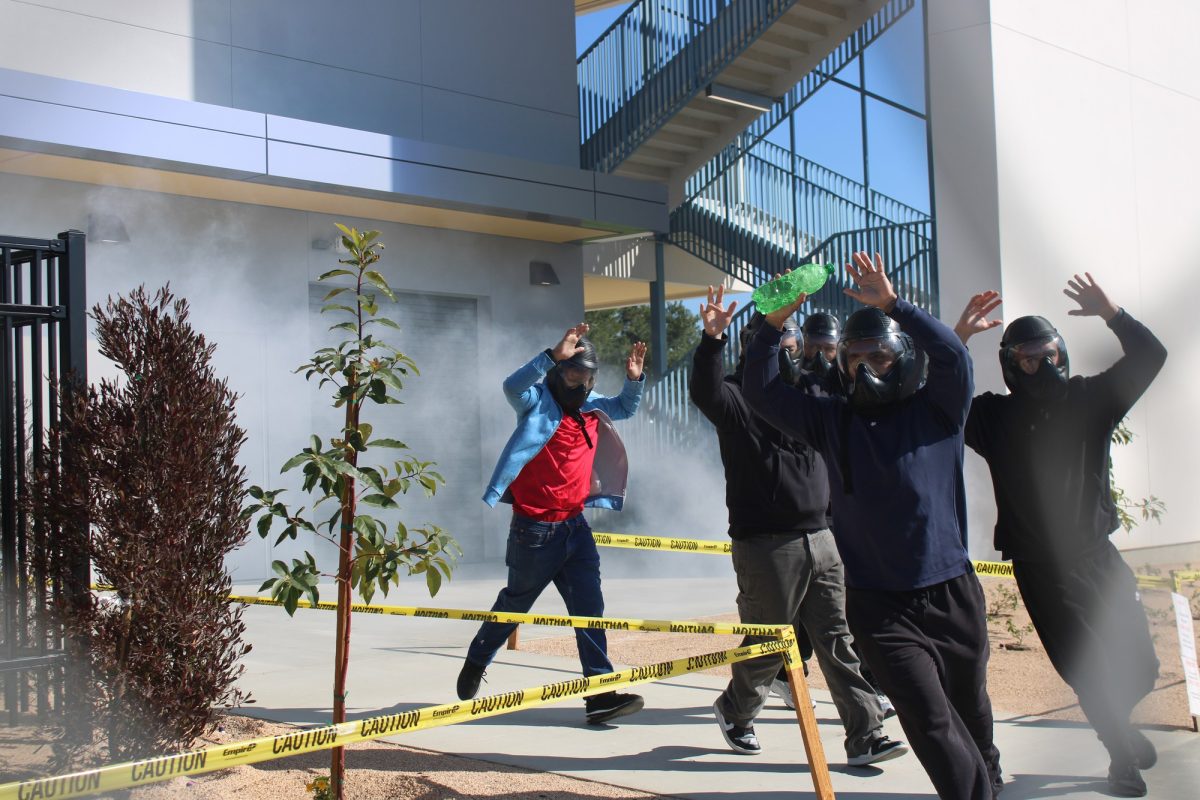April Griffin, director of the forensics team and speech instructor, organized the faculty and student debate held on Thursday to discuss the possibility of having an online-only syllabus for students in the upcoming semesters.
Griffin organized two other showcases this year and she hopes to have her debate students “continue to go to national events and stay competitive.”
“I knew I had done (both) an online syllabus and had printed (the syllabus) out. So I was interested to know what would be best for my students,” Griffin said.
Arguing for the online-only syllabus, was Phi Ro Pi Club President, Matt Hamilton and faculty member Bryan Reece, dean of academic success.
The opposing side consisted of club Vice President Analicia Avila and speech instructor Bill Sparks.
Hamilton and Reece argued that an online-only syllabus would be the best for Cerritos College as it would save paper and money. They also discussed how the saved money could go to making two new classes a semester.
Hamilton mentioned that this is the future of teaching, working with technology is important since it is available to us, and how it would be more interactive with a “multimedia syllabus instead of the traditional paper.”
Expanding the syllabus to have links and videos to make the syllabus more interesting and informative then ever. This was a key point of the positive side of the issue.
Reece argued that faculty should use technology more in their teaching techniques.
“(A paper syllabus has been) gradually phasing out over the past four semesters. Technology isn’t integrated into teaching, but faculty will become better with technology over time,” Reece said during his debate.
The opposing side’s argument focused a lot of its energy on the fact that disabled students would not be able to have what they need to read the syllabus if it were to be online-only. This argument won the debate.
“(An online only syllabus system) goes against title 2 disability act of 1990,” Avila said.
The title 2 states that all students with disability should have easy access to the things that accommodate their needs.
Another key point they made was the cost would just be shifted to the students.
“Students would have to pay for the printing of the syllabus instead of the teachers. Some are eight pages long and the library is the only place to really print the syllabus out,” Avila said.
In the closing of the debate both teams told the audience, which consisted of mainly students, their last arguments.
The audience then voted for who they thought won the debate and choose the side who argued that an online-only syllabus was not the best choice for students.


